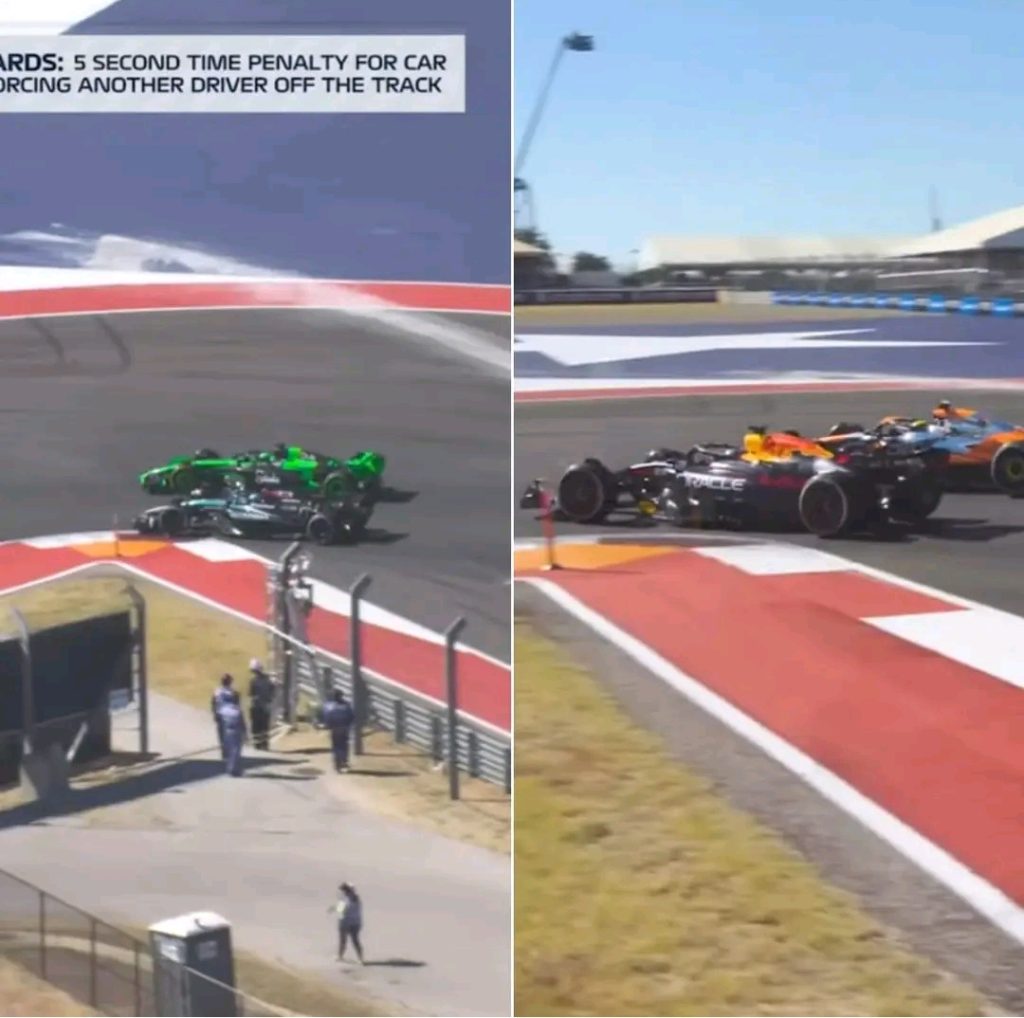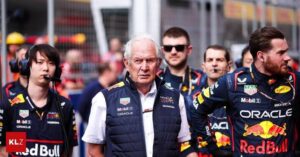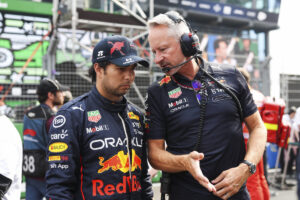F1 US GP UPDATE: Controversial FIA Penalties Spark Debate at US GP: Teams Question…Stewarding…..Read more

“Controversial FIA Penalties Spark Debate at US Grand Prix: Teams Question Consistency in Stewarding”
The recent US Grand Prix at the Circuit of the Americas saw a number of controversial moments, including several penalties that stirred up debate about the consistency of FIA decisions. In particular, two key incidents involving the application of five-second penalties caught the attention of teams and fans alike, reigniting discussions about the fairness of stewarding in Formula 1.
The first incident highlighted in the image was a penalty for forcing another driver off track. In this case, the FIA applied a five-second time penalty, as per the rules, to a driver who gained an advantage by forcing a competitor wide. The image shows two cars going wheel-to-wheel, with one being pushed off the racing line and onto the runoff area, leading to the stewards’ intervention. This penalty is in line with FIA regulations, which state that a driver must leave at least one car’s width of space when defending a position. If a driver forces another car off track without giving them enough room, a penalty can be issued. In this instance, the stewards deemed that the move was unfair and handed out the time penalty accordingly.
On the right side of the image is a separate incident involving McLaren’s Lando Norris and Red Bull’s Max Verstappen, which also attracted significant attention. The two drivers were involved in a battle late in the race when Norris overtook Verstappen off track, leading to Norris being penalized with a five-second time penalty. The stewards determined that Norris gained an unfair advantage by exceeding track limits to complete the move, a decision that cost him a potential podium finish, dropping him to fourth place behind Verstappen.
While the FIA’s decision to apply penalties is supported by the rulebook, the incidents still sparked controversy. Mercedes team principal Toto Wolff, in particular, voiced his frustration with what he called “biased” decision-making, criticizing the stewards’ inconsistency. Wolff’s comments came after his own driver, George Russell, was handed a similar penalty for gaining an advantage off track in a separate battle with Alfa Romeo’s Valtteri Bottas. Wolff felt the penalties were not being applied evenly across the grid, with Verstappen escaping sanction for his involvement in the turn-one clash with Norris at the start of the race.
Wolff’s remarks followed a tense race for Mercedes, which saw Lewis Hamilton crash out on lap two, marking a weekend to forget for the Silver Arrows. Russell’s sixth-place finish after his penalty only added to the team’s frustrations.
The Norris-Verstappen penalty also drew the attention of McLaren team principal Andrea Stella, who echoed Wolff’s concerns about inconsistency in stewarding. Stella pointed out that while Norris was penalized for his move on Verstappen, other incidents earlier in the race seemed to go unpunished, suggesting a lack of uniformity in the application of the rules.
Despite these controversies, Ferrari emerged victorious at the US Grand Prix, with Charles Leclerc taking the win ahead of teammate Carlos Sainz, who finished second. Verstappen, after benefitting from Norris’ penalty, secured third place on the podium.
The race was marked by tight battles throughout the field, but the FIA’s decisions left several teams and drivers questioning the fairness of the process. As the Formula 1 season nears its conclusion, the debate over stewarding and the consistency of penalties is likely to continue, with teams pushing for clearer guidelines and more uniform enforcement of the rules.
The US Grand Prix was a reminder of the fine margins in Formula 1, where a single decision can alter the outcome of a race. The FIA’s commitment to applying penalties is aimed at ensuring fairness, but the differing opinions from teams and drivers suggest that striking the right balance remains a challenge.








